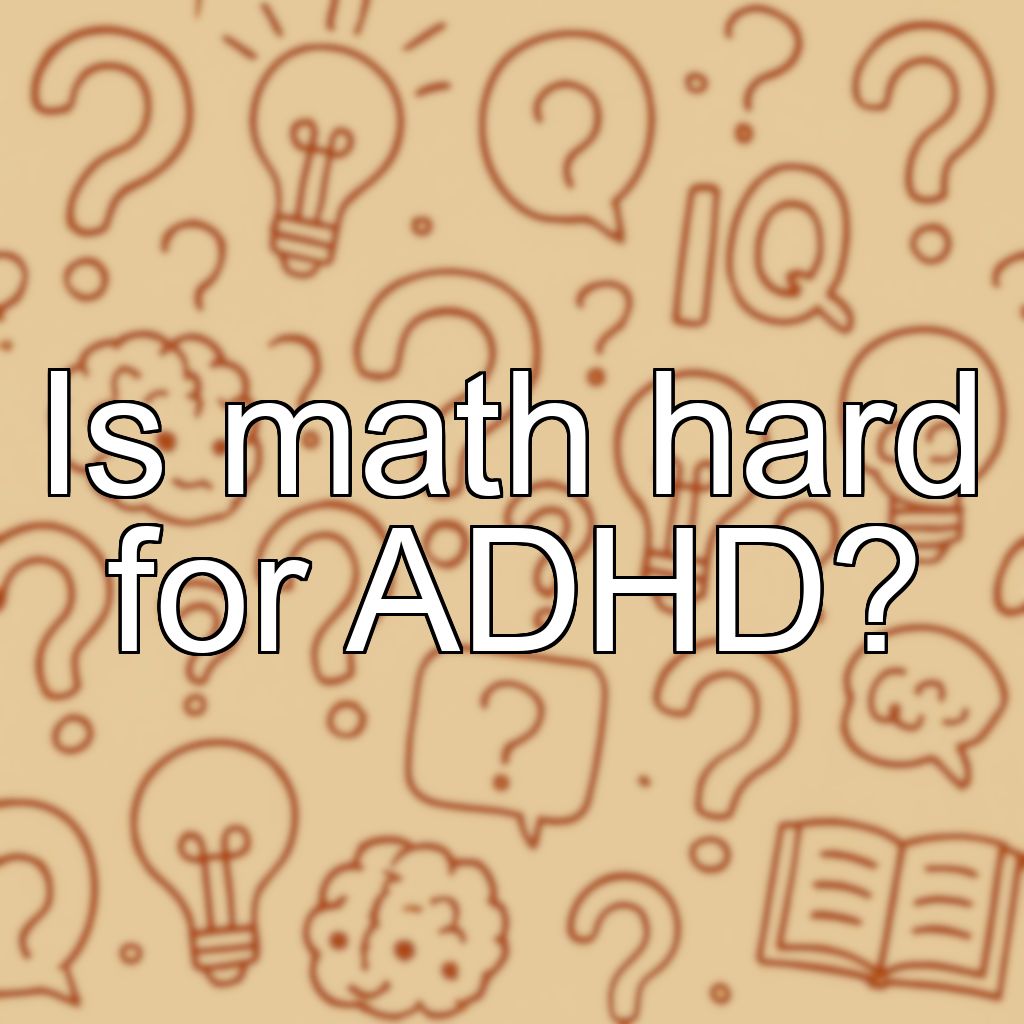Is math hard for ADHD?

Understanding Math Difficulty in Individuals with ADHD
Mathematics can present unique challenges for individuals with Attention Deficit Hyperactivity Disorder (ADHD), but the experience varies widely among people. ADHD affects executive functions such as attention regulation, working memory, impulse control, and organizational skills—all of which are crucial for learning and performing math tasks.
Common Challenges
- Difficulty concentrating: Maintaining focus during math lessons or problem-solving can be hard, leading to missed steps or misunderstandings.
- Working memory issues: Holding numbers or steps in mind while solving problems can be especially challenging.
- Impulsivity: Rushing through problems without checking work can cause errors.
- Organizational difficulties: Keeping track of formulas, steps, or tools needed for solving problems may be problematic.
Factors Affecting Math Performance
While ADHD can increase the difficulty of learning math, individual factors such as the presence of supportive teaching methods, accommodations, and personal motivation play a significant role. With appropriate strategies, such as structured routines, visual aids, and breaks, many individuals with ADHD can improve their math skills.
Support and Strategies
- Use of visual aids and manipulatives to make abstract concepts more concrete.
- Chunking information into smaller, manageable parts.
- Frequent breaks to maintain focus.
- Utilizing technology such as calculators and educational apps.
- Seeking specialized instruction or tutoring tailored to learning needs.
In summary, while math can be more challenging for individuals with ADHD due to executive function difficulties, with targeted support and adaptive strategies, many can succeed and even excel in mathematics.